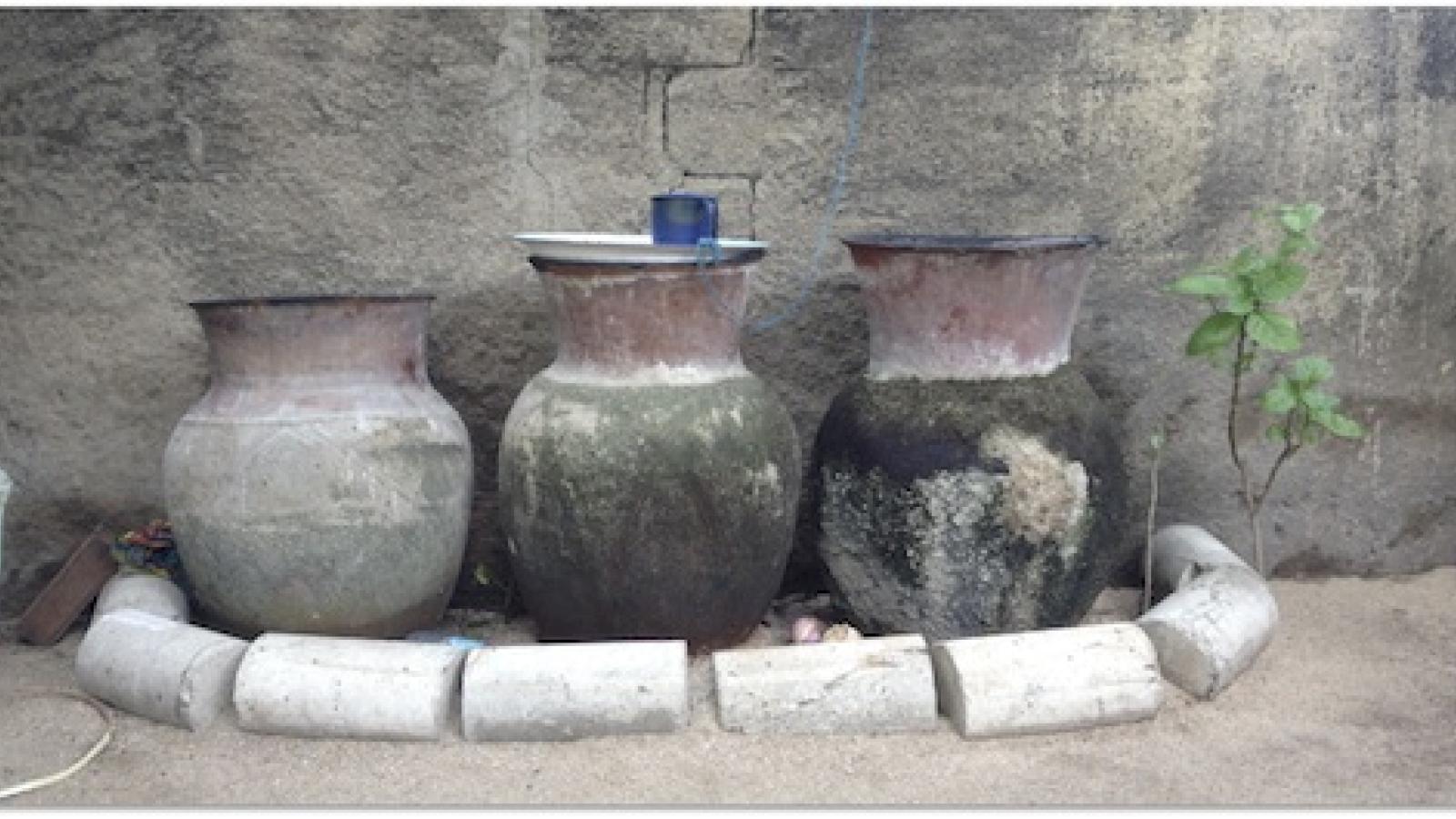Water Management and Human Health
One of the interdisciplinary projects that emerged from our DECML lab is a study of water management and human health. This interdisciplinary group consisted of faculty from Public Health (Jiyoung Lee, Grzegorz Rempala), Veterinary Preventive Medicine (Rebecca Garabed), Anthropology (Barbara Piperata, Mark Moritz) and the University of Maroua in Cameroon (Arabi Mouhaman, Mouadjmaou Ahmadou). Our group used a holistic approach to study the complex disease ecology of human and animal health. We called our group CANARI, which is not an acronym but simply refers to the French name for the clay water storage containers that can be found all across West Africa. We started with a pilot study of water management and human health in urban Africa in which the canaries were central. The canaries are used to cool and store water in the city of Maroua in the Far North Region of Cameroon. This pilot study later evolved into another exciting study of the development of infant gut microbiomes in Brazil led by Barbara Piperata and Jiyoung Lee.
Publications
Jessica Healy-Profitós, Seungjun Lee, Arabi Mouhaman, Rebecca Garabed, Mark Moritz, Barbara Piperata, and Jiyoung Lee. 2016. Neighborhood diversity of potentially pathogenic bacteria in drinking water from the city of Maroua, Cameroon. Journal of Water and Health. 14(3):559-570. 10.2166/wh.2016.204.
Healy Profitós, Jessica, Arabi Mouhaman, Seungjun Lee, Rebecca Garabed, Mark Moritz, Barbara Piperata, Joe Tien, Michael Bisesi, Jiyoung Lee. 2014. Muddying the Waters: A New Area of Concern for Drinking Water Contamination in Developing Countries. International Journal of Environmental Research and Public Health. 11:12454-12472. 10.3390/ijerph111212454

